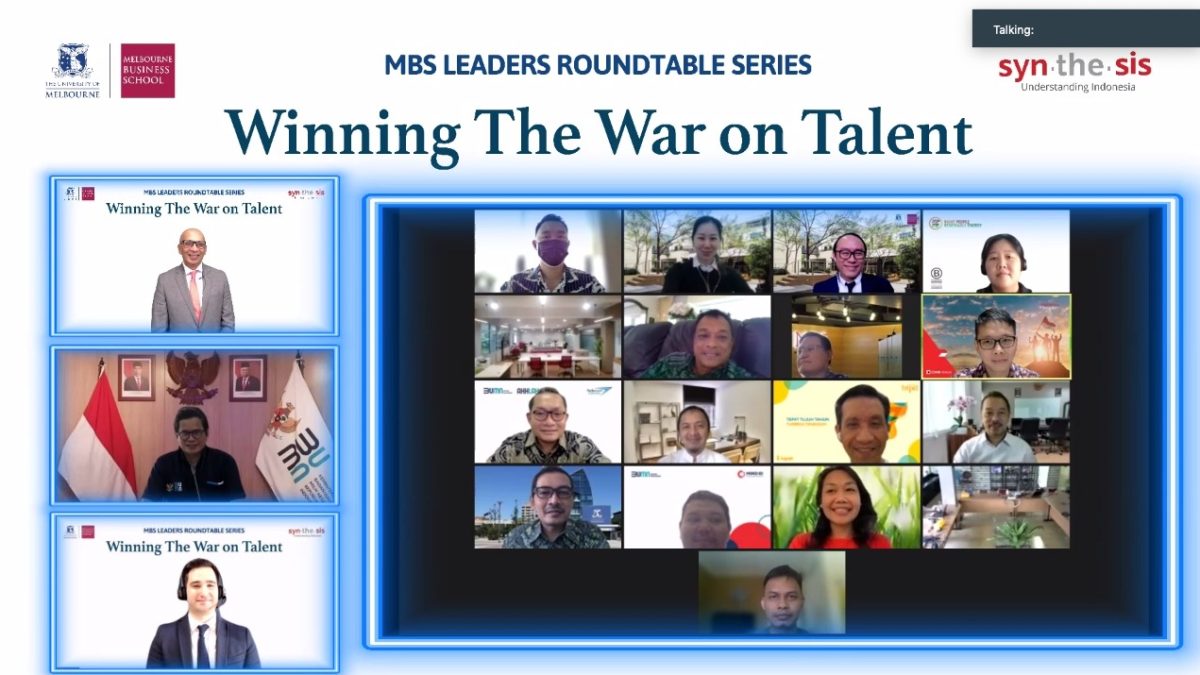JAKARTA -Tuesday (July, 27, 2021)–Melbourne Business School in Collaboration with Synthesis Communication held the first roundtable with the theme: Winning the War on Talent.
Talent is today the world’s most valuable commodity. But it is becoming harder and harder for business leaders and CEOs to find the right talent to drive growth and profitability.
“Today’s roundtable discussion topic is perhaps is the top most priority for corporate leaders: How do we recruit talent within our organizations? Even more fundamentally how do we define talent in today’s world? Is talent in bound? Or can it be taught? These are the questions that hopefully will be answered this morning,” said Shoeb Kagda, Founder & CEO Synthesis Communications.
Pahala Mansuri, Vice Minister of State Owned Enterprises in his keynote address highlighted three key elements in talent development. First, business leaders must spend the majority of their time to select and develop talent.
Secondly, having a strong system in place and regular feedback will mitigate personal biases when it comes to identifying talent. Thirdly, it not always about selecting people but developing them by assigning them tasks and coaching them as part of talent development programs.
“As my ex-boss always told me, you can delegate everything but you will never be able to delegate talent management,” he noted. “It is widely being researched that most of the organizations that are high performing, the majority the focus of top management is on talent development.”
“I think it might be 50% or 60% of their time and that is probably not the easiest thing to do, to be spend the majority of time on people selection, development and making sure you have the right system or process to promote the best or the high performers,” he added.
Burak Oc, Associate Professor of Organizational Behavior at Melbourne Business School concluded the discussion with some key points. First, talent management is complex or murky when organizations want to do it on the ground. Often, organizations want to take the easiest path, focus on the result and then they just hope people will do the right things in organizations and that is not necessarily the case all the time.
Secondly, talent management is defined not just by managing people and their performances.
“Performance is not about outcomes and effectiveness. Performance is about behavior which directly influences the core technical systems of organizations,” he noted.
He added: Talent is not about how well they do their jobs and task, but sometimes also how well they glue the members of their organizations or team as well,” he noted.

